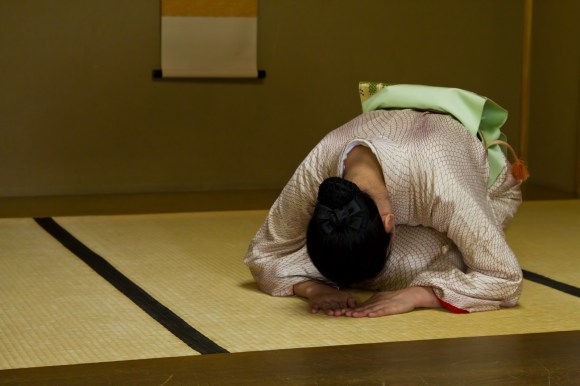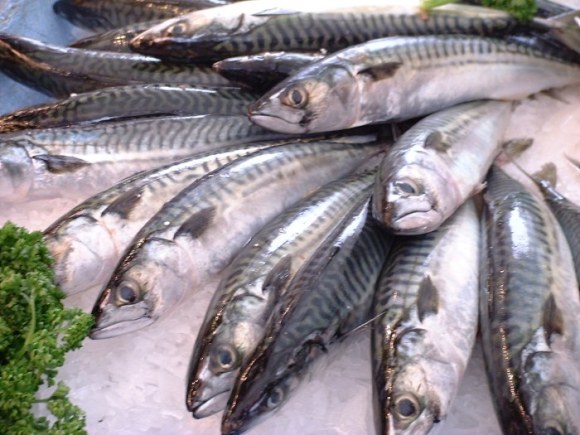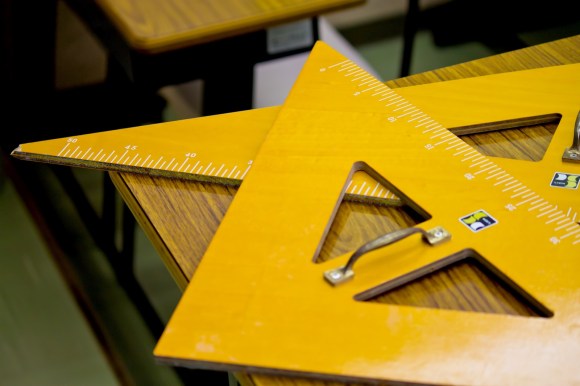
Five words just as hard to figure out as kanji.
The Internet has a language of its own. Words like LOL and WTF are common enough that even our grandparents know them, but others like TL;DR (“too long; didn’t read”) and SMH (“shake my head”) can still mystify people until they look them up in Urban Dictionary.
And the same thing goes for Japanese. The Japanese Internet has developed a bit of a dialect of its own, and even if you can read and write regular Japanese no problem, you’re still bound to run into a few words, phrases, and symbols that leave you feeling stumped.
That’s why today we’re counting down the top five indecipherable Japanese Internet slang words. It’s dangerous to go into the Japanese Internet alone; take this!
So let’s get to it! Starting off with…
Honorable Mention: “www” and ワロタ (“warota”)
Ah yes, the Japanese versions of LOL. How could we not start with these? They’re only an honorable mention because they’re relatively well known across the Internet, but just in case you’ve never seen them before, here’s the breakdown:
The first one, “www,” is any number of w’s after each other. The “w” stands for warau (笑う) meaning “to laugh.”
▼ As you can see in this example tweet,
the number of w’s can vary (translation below).
財布をJRの中置いてきたwwwwwwww
— まんかすいろは (@Supermonster120) April 4, 2017
家帰れねぇwwwwwwwwやべぇっwww
ふぉぉぉぉ!wwwwwww
え、ちょ 、まじか
誰か助けて
“I left my wallet at that JR station lollllllll
I can’t go home lollllllll crap lolll
Ohhhh lolllllll
Uh, um, really
Someone help me”
The other one, warota, comes from the same word warau (笑う) to laugh, conjugated into its past-tense form waratta. Waratta gets changed to warata, then warota.
You can also see warosu and warotasu as alternative spellings sometimes, though they all mean roughly the same thing. And since warota and its many alternative forms are a little longer than just “www,” I’d say it’s okay to translate it as ROFL in a lot of circumstances.
▼ Just like in English, warota (here in katakana) likes to team up
with its friend “www” for extra LOL-ing/ROFL-ing.
ワロタwww pic.twitter.com/IkTBEgsSUW
— らら (@rarara_i7) April 4, 2017
#5. orz
The first official item on the list of indecipherable Internet slang words is also one of the strangest: orz. What makes it so odd? Well, it’s the fact that you don’t actually pronounce it at all.
That’s right, you don’t read this one out loud as “oars” or “oh ar zee” or anything like that. Instead “orz” is essentially just ASCII art representing a person bowing down in apology/respect. The “o” is the head, the “r” is the hand on the ground, and the “z” is the bent legs.
▼ Here’s a horribly-drawn picture to help illustrate “orz.”

▼ An example orz apology from Twitter: “Sorry! I was jet-lagged and
couldn’t wake up orz. But it was lucky to see you at the end!”
ごめん!時差ボケで起きれんかったorz
— とーるぅ@細かいことは固定ポストで (@toruoftrickstar) March 25, 2017
でも最後に会えてらっきー!
Just like most Internet abbreviations, there are alternatives to just the plain “orz” for those who have grown tired of it. Here’s just a small sampling; see if you can visualize them in the letters:
● STO (person bowing to the right)
● OLS (person lying on the ground with hands in air)
● prz (person bowing to the left with a pompadour)
▼ Why you’d need to ever apologize for anything
with hair like that, however, remains a mystery.
>リーゼントがハートマーク
— 天野竜@ファーム22のオレンジの木になりたい🍊🍊🍊 (@R_Amano) March 24, 2017
梅 宮 龍 之 介#eremffs pic.twitter.com/q5cmHrNx1C
#4. 鯖 (“saba”)
Unlike the last items on the list, which an outsider would simply have no idea what they mean, this one has a normal meaning all by itself, which could result in some hilarious misunderstandings.
Saba (鯖) is the Japanese word for “mackerel.” At least, that’s what it means at the fish market, but when you see it online, there’s a chance that instead it’s referring to something else: a server, as in, an Internet server.
The reason why is very simple. The Japanese word for “server” is sābā (borrowed from English), and the word for “mackerel” is saba. The two are very similar, and the fish one is two less keyboard-presses to type, so it taking over as an abbreviation was almost inevitable.
This tweet, for example, would be kind of bizarre to an outsider if they thought “servers” were a type of fish.
▼ “I’ve been on and off the hasa and minez servers
since 11:00 and never saw anyone.”
#3. DQN
If there’s one thing Japanese is rich with, it’s ways of calling someone “stupid.” As we’ve seen before in the most offensive swear words and insults, Japanese is an ice cream buffet of distinct flavors of the word “idiot.”
So now let’s add another to the list, an Internet favorite: DQN.
“DQN” isn’t an acronym for anything. Instead it’s an abbreviation of the word dokyun (D = do, Q = kyu, N = n), which means something like “idiot/stupid,” especially if they do something rash or reckless without thinking, such as running red lights while driving, being corrupt in business/government, or engaging in yankii (“hoodlum”) behavior.
The word has its origin in the late nineties/earlier 2000s Japanese TV show Mokugeki! Dokyun! (“Caught on Camera! Idiots!”). It got picked up by the Internet and has never left its grasp ever since, remaining as a refreshing way to call someone an idiot instead of the usual baka.
▼ “When I look at DQN drivers I often see weed-shaped air
fresheners hanging from their rearview mirrors.”
DQNの車のミラーのところによくぶら下がっている大麻の形したやつ
— むき🌗 (@mukai3) March 26, 2017
#2. 草生える (“kusa haeru”)
If using “www” or warota as the Japanese version of LOL is too commonplace for you, then here’s another addition you can make to your linguistic arsenal: kusa haeru.
At first glance the word kusa haeru has a meaning that has nothing to do with laughing. Kusa means grass, and haeru means “to grow/sprout,” so it just means “growing grass.”
The word has its origin from “www,” which if you use a little bit of imagination, looks like blades of grass sprouting out of the ground. This is especially noticeable when watching videos on the Japanese website NicoNico Douga, where viewers’ comments fly across the video.
▼ Just look at all that grass growing on this video screenshot!
戦力外通告クソワロタwww 【自然を食べよう?】備蓄を食べよう!編 5/5 https://t.co/wceOKB4WF6 #sm30967750 #ニコニコ動画 pic.twitter.com/hIpUB2g6n7
— shins (@shins6290) April 5, 2017
And NicoNico Douga is where the phrase kusa haeru got its origin. It’s now used all over the Internet and can sometimes be seen abbreviated just as kusa. Similar to the “server/mackerel” slang, it’s kind of funny to imagine someone reading it who doesn’t know the double meaning.
▼ “Even though the three of us finally got together, we just
watched Hikakin videos on YouTube in silence growing grass.”
せっかく三人で集まったのにヒカキンの動画無言で見てるの草生える
— どやちぃ (@doyachii1217) March 26, 2017
And the #1 most indecipherable Japanese Internet slang word is…
.
.
.
.
.
.
.
.
.
.
1. △
Yup, that’s right. The final item on the list isn’t an abbreviation, heck it’s barely even a word. It’s just a symbol, a triangle: △
The word for “triangle-shape” in Japanese is sankakukei, and again if you use a little imagination, it can progress into a different phrase completely:
1. sankakukei (“triangle-shape”) turns into…
2. san ka kukei which turns into…
3. san ga kakkee (“___-san is cool/handsome”)
San is of course the suffix added to people’s names in Japanese, and kakkee is the masculine/tough way of saying the word kakkoii (“cool/handsome”).
So if you want to say that your favorite anime character (Luffy from One Piece, of course) is cool, there’s no need to spell out the whole phrase, you can just slam a triangle at the end of his name.
▼ Which is exactly what this excited fan did here.
ルフィ (Luffy) + △ = Luffy-san ga kakkee!
▼ And just in case there was any doubt as to the meaning of
the triangle, this tweet spells it out: “Luffy△ = Luffy-san is cool”
So there you have it, the top five indecipherable Japanese Internet slang words. Are there any crazy Internet slang words in your native language? Let us know in the comments and we’ll try to figure them out as we enjoy a nice bowl of the top five Japanese spring foods.
References: Netto Yogo no Imi Jiten
Top image: PAKUTASO (edited by SoraNews24)
W.T.F. Japan will be back next Thursday. In the meantime, give me a follow on Twitter and let me know if there’s any topics you’d like to see covered. See you next week!







 W.T.F. Japan: Top 5 most confusing Japanese counter words【Weird Top Five】
W.T.F. Japan: Top 5 most confusing Japanese counter words【Weird Top Five】 W.T.F. Japan: Top 5 most confusing Japanese compound words【Weird Top Five】
W.T.F. Japan: Top 5 most confusing Japanese compound words【Weird Top Five】 W.T.F. Japan: Top 5 confusing Japanese hand gestures【Weird Top Five】
W.T.F. Japan: Top 5 confusing Japanese hand gestures【Weird Top Five】 W.T.F. Japan: Top 5 kanji with the longest readings 【Weird Top Five】
W.T.F. Japan: Top 5 kanji with the longest readings 【Weird Top Five】 W.T.F. Japan: Top 5 nicest sounds in Japan【Weird Top Five】
W.T.F. Japan: Top 5 nicest sounds in Japan【Weird Top Five】 Survey finds that one in five high schoolers don’t know who music legend Masaharu Fukuyama is
Survey finds that one in five high schoolers don’t know who music legend Masaharu Fukuyama is Japanese potato chip Rubik’s Cubes coming soon
Japanese potato chip Rubik’s Cubes coming soon Last chance coming up for amazing east Japan for all-you-can-ride Shinkansen-inclusive train pass
Last chance coming up for amazing east Japan for all-you-can-ride Shinkansen-inclusive train pass Clear tonkotsu ramen becomes a cult hit at “Ramen Runway” in Japan
Clear tonkotsu ramen becomes a cult hit at “Ramen Runway” in Japan Japanese net users reminisce over novelty pregnant Licca-chan doll with unlockable belly
Japanese net users reminisce over novelty pregnant Licca-chan doll with unlockable belly 10 vegetarian foods you can order at almost any Japanese restaurant
10 vegetarian foods you can order at almost any Japanese restaurant Nintendo releases Metroid-shaped ice cube/cooking tray and Samus arm cannon pillow【Pics】
Nintendo releases Metroid-shaped ice cube/cooking tray and Samus arm cannon pillow【Pics】 Yakuzen ramen restaurant in Tokyo is very different to a yakuza ramen restaurant
Yakuzen ramen restaurant in Tokyo is very different to a yakuza ramen restaurant Saitama is home to the best strawberries in Japan that you’ve probably never even heard of
Saitama is home to the best strawberries in Japan that you’ve probably never even heard of Do you use these “Philippine English” words and phrases?
Do you use these “Philippine English” words and phrases? The 10 most annoying things foreign tourists do on Japanese trains, according to locals
The 10 most annoying things foreign tourists do on Japanese trains, according to locals Starbucks Japan releases new sakura goods and drinkware for cherry blossom season 2026
Starbucks Japan releases new sakura goods and drinkware for cherry blossom season 2026 Naruto and Converse team up for new line of shinobi sneakers[Photos]
Naruto and Converse team up for new line of shinobi sneakers[Photos] Is Sapporio’s Snow Festival awesome enough to be worth visiting even if you hate the snow? [Pics]
Is Sapporio’s Snow Festival awesome enough to be worth visiting even if you hate the snow? [Pics] Japan has trams that say “sorry” while they ride around town…but why?
Japan has trams that say “sorry” while they ride around town…but why? Sakura Totoro is here to get spring started early with adorable pouches and plushies
Sakura Totoro is here to get spring started early with adorable pouches and plushies Starbucks Japan unveils new sakura Frappuccino for cherry blossom season 2026
Starbucks Japan unveils new sakura Frappuccino for cherry blossom season 2026 Poop is in full bloom at the Unko Museums for cherry blossom season
Poop is in full bloom at the Unko Museums for cherry blossom season Now is the time to visit one of Tokyo’s best off-the-beaten-path plum blossom gardens
Now is the time to visit one of Tokyo’s best off-the-beaten-path plum blossom gardens Playing Switch 2 games with just one hand is possible thanks to Japanese peripheral maker
Playing Switch 2 games with just one hand is possible thanks to Japanese peripheral maker Japan’s newest Shinkansen has no seats…or passengers [Video]
Japan’s newest Shinkansen has no seats…or passengers [Video] Foreigners accounting for over 80 percent of off-course skiers needing rescue in Japan’s Hokkaido
Foreigners accounting for over 80 percent of off-course skiers needing rescue in Japan’s Hokkaido Super-salty pizza sends six kids to the hospital in Japan, linguistics blamed
Super-salty pizza sends six kids to the hospital in Japan, linguistics blamed Foreign tourists in Japan will get free Shinkansen tickets to promote regional tourism
Foreign tourists in Japan will get free Shinkansen tickets to promote regional tourism Take a trip to Japan’s Dododo Land, the most irritating place on Earth
Take a trip to Japan’s Dododo Land, the most irritating place on Earth Archfiend Hello Kitty appears as Sanrio launches new team-up with Yu-Gi-Oh【Pics】
Archfiend Hello Kitty appears as Sanrio launches new team-up with Yu-Gi-Oh【Pics】 Survey asks foreign tourists what bothered them in Japan, more than half gave same answer
Survey asks foreign tourists what bothered them in Japan, more than half gave same answer Japan’s human washing machines will go on sale to general public, demos to be held in Tokyo
Japan’s human washing machines will go on sale to general public, demos to be held in Tokyo Starbucks Japan releases new drinkware and goods for Valentine’s Day
Starbucks Japan releases new drinkware and goods for Valentine’s Day We deeply regret going into this tunnel on our walk in the mountains of Japan
We deeply regret going into this tunnel on our walk in the mountains of Japan Studio Ghibli releases Kodama forest spirits from Princess Mononoke to light up your home
Studio Ghibli releases Kodama forest spirits from Princess Mononoke to light up your home Major Japanese hotel chain says reservations via overseas booking sites may not be valid
Major Japanese hotel chain says reservations via overseas booking sites may not be valid Put sesame oil in your coffee? Japanese maker says it’s the best way to start your day【Taste test】
Put sesame oil in your coffee? Japanese maker says it’s the best way to start your day【Taste test】 No more using real katana for tourism activities, Japan’s National Police Agency says
No more using real katana for tourism activities, Japan’s National Police Agency says W.T.F. Japan: One year anniversary special! Top 5 W.T.F. Japan articles 【Weird Top Five】
W.T.F. Japan: One year anniversary special! Top 5 W.T.F. Japan articles 【Weird Top Five】 W.T.F. Japan: Top 5 Japanese words with cool ancient origin stories【Weird Top Five】
W.T.F. Japan: Top 5 Japanese words with cool ancient origin stories【Weird Top Five】 W.T.F. Japan: Top 5 most ridiculous kanji handwriting shortcuts【Weird Top Five】
W.T.F. Japan: Top 5 most ridiculous kanji handwriting shortcuts【Weird Top Five】 W.T.F. Japan: Top 5 crazy awesome features of Japanese restaurants 【Weird Top Five】
W.T.F. Japan: Top 5 crazy awesome features of Japanese restaurants 【Weird Top Five】 W.T.F. Japan: The top five “sora” references of all time! 【Weird Top Five】
W.T.F. Japan: The top five “sora” references of all time! 【Weird Top Five】 W.T.F. Japan: Top 5 offensive Japanese insults【Weird Top Five】
W.T.F. Japan: Top 5 offensive Japanese insults【Weird Top Five】 W.T.F. Japan: Top 5 most perfectly translated Pokémon names【Weird Top Five】
W.T.F. Japan: Top 5 most perfectly translated Pokémon names【Weird Top Five】 W.T.F. Japan: Top 5 best Tamagotchi releases 【Weird Top Five】
W.T.F. Japan: Top 5 best Tamagotchi releases 【Weird Top Five】 W.T.F. Japan: Top 5 myths about learning Japanese【Weird Top Five】
W.T.F. Japan: Top 5 myths about learning Japanese【Weird Top Five】 W.T.F. Japan: Top 5 most hilarious Japanese euphemisms 【Weird Top Five】
W.T.F. Japan: Top 5 most hilarious Japanese euphemisms 【Weird Top Five】 W.T.F. Japan: Top 5 kanji with ironic meanings【Weird Top Five】
W.T.F. Japan: Top 5 kanji with ironic meanings【Weird Top Five】 W.T.F. Japan: Top 5 most difficult Japanese tongue twisters (with videos!) 【Weird Top Five】
W.T.F. Japan: Top 5 most difficult Japanese tongue twisters (with videos!) 【Weird Top Five】 W.T.F. Japan: Top 5 most annoying sounds in Japan 【Weird Top Five】
W.T.F. Japan: Top 5 most annoying sounds in Japan 【Weird Top Five】 W.T.F. Japan: Top 5 hardest Japanese habits to break 【Weird Top Five】
W.T.F. Japan: Top 5 hardest Japanese habits to break 【Weird Top Five】 W.T.F. Japan: Top 5 biggest Japanese food challenges【Weird Top Five】
W.T.F. Japan: Top 5 biggest Japanese food challenges【Weird Top Five】